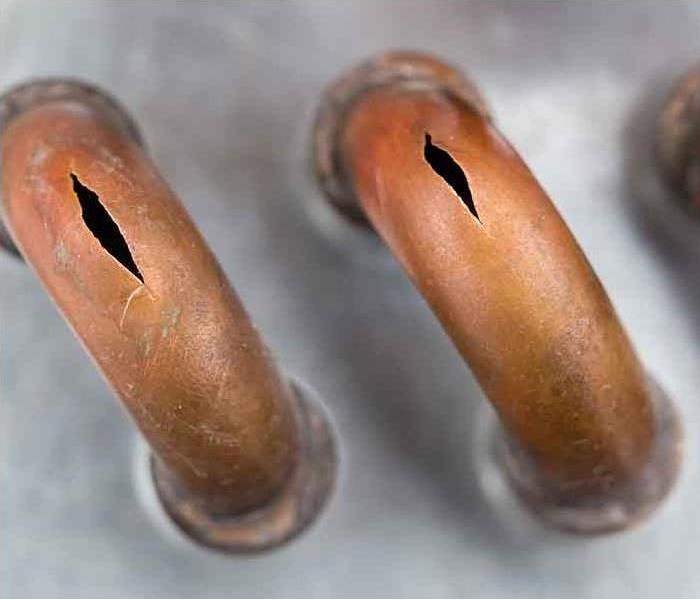Tips to help prevent pipes from freezing
11/5/2019 (Permalink)
If you have suffered a water loss from a busted pipe then you know how difficult it can be. SERVPRO of Lake Charles is here to help prevent this type of water damage.
The three central causes of frozen pipes are quick drops in temperature, poor insulation, and thermostats set too low. You can prepare your home during the warmer months.
- Insulate pipes in your home's crawl spaces and attic, even if you live in a climate where freezing is uncommon. Exposed pipes are most susceptible to freezing. Remember, the more insulation you use, the better protected your pipes will be.
- Heat tape or thermostatically controlled heat cables can be used to wrap pipes. Be sure to use products approved by an independent testing organization, such as Underwriters Laboratories Inc., and only for the use intended (exterior or interior). Closely follow all manufacturers' installation and operation instructions.
- Seal leaks that allow cold air inside near where pipes are located. Look for air leaks around electrical wiring, dryer vents, and pipes, and use caulk or insulation to keep the cold out. With severe cold, even a tiny opening can let in enough cold air to cause a pipe to freeze.
- Before winter hits, disconnect garden hoses and, if possible, use an indoor valve to shut off and drain water from pipes leading to outside faucets. This reduces the chance of freezing in the short span of pipe just inside the house.
- A trickle of hot and cold water might be all it takes to keep your pipes from freezing. Let warm water drip overnight, preferably from a faucet on an outside wall.
- Keep your thermostat set at the same temperature during both day and night. You might be in the habit of turning down the heat when you're asleep, but further drops in the temperature - more common overnight - could catch you off guard and freeze your pipes.
- Open cabinet doors to allow heat to get to un-insulated pipes under sinks and appliances near exterior walls.





 24/7 Emergency Service
24/7 Emergency Service
